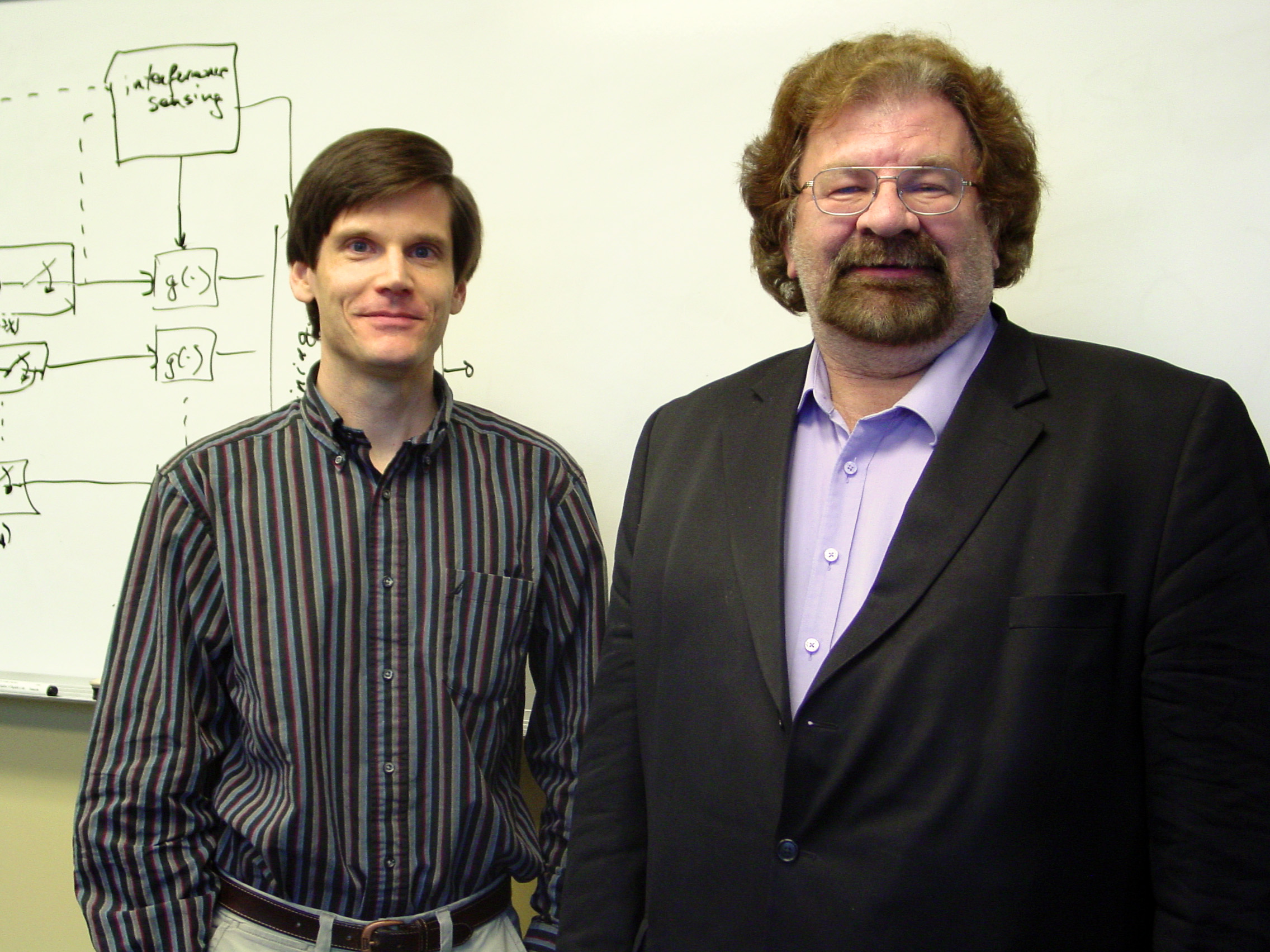
Post Doctoral Fellow Dr. David Young and i CORE Chair Norman C. Beaulieu received an IEEE (Institute of Electrical and Electronics Engineers) Best Paper Award for their paper, “Time-Hopped Ultrawide Bandwidth Receiver Designs Using Multiuser Interference Sensing.” The paper was presented at the 2011 IEEE International Conference on Ultra-Wideband (ICUWB) in Bologna, Italy, Sept. 14-16, 2011.
The IEEE 2011 ICUWB was held in Bologna, Italy, where wireless communication was first demonstrated by Guglielmo Marconi in 1895. The IEEE ICUWB conference brings together the world's leading researchers from academia and industry working in UWB communications and networking technologies. The 2011 ICUWB received more than 200 paper submissions. Of these submissions, 128 papers were presented in 23 regular sessions.
Prize Paper Abstract: The uncoordinated nature of impulse radio ultra-wide bandwidth (UWB) transmissions leads to multiple-user interference (MUI) at each receiver. Due to use of a repetition code and multipath propagation, a Rake receiver has many partial decision statistics available for use in forming a symbol decision. Novel time-hopped UWB Rake receiver structures have been designed that aim to mitigate MUI by sensing the presence of MUI in the partial decision statistics associated with each received symbol. The presented IS method responds to mistimed pulses arising from interfering users for each repeated pulse (frame) of the symbol, in each Rake finger, yielding a signal that is correlated with signals from interfering users but uncorrelated with the desired-user signal. Receivers are presented that use MUI-sensing in selection of the best received pulses for combining, i.e., pulses less likely to be catastrophically corrupted by a pulse due to an interfering user. Also considered are nonlinear receiver structures in which MUI-sensing is used to select a subset of partial decision statistics to undergo nonlinear processing and/or combining.
